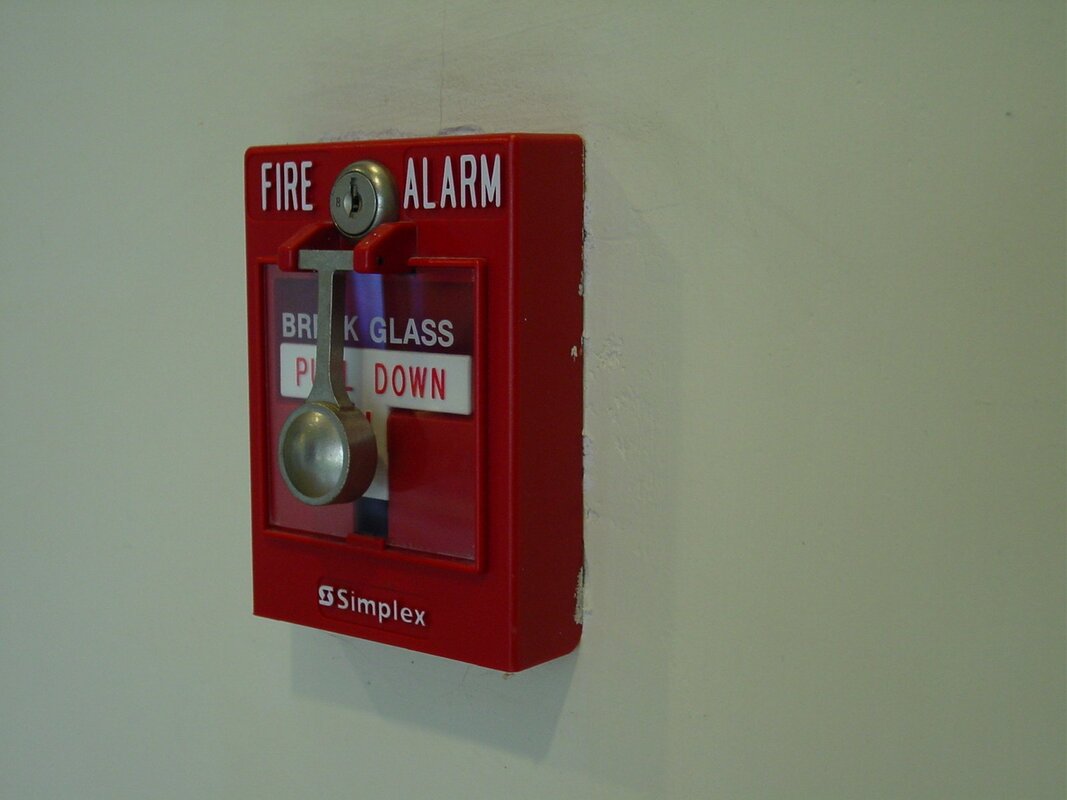|
By Jennifer Rollin, MSW, LCSW-C As parents, it can be difficult to tell what is really behind your teen’s recent desire to lose weight, newfound interest in “healthy” eating, or preoccupation with food. As a therapist and founder of The Eating Disorder Center in Rockville, Maryland, I have spoken with many parents about “warning signs” that their children were struggling with, which they initially missed. There is no guidebook for how to tell if your child is secretly struggling with anorexia, bulimia, or binge eating disorder. Eating disorders often thrive on secrecy and silence. Many children may be unaware themselves that they are starting to slip into a life-threatening mental illness. The following are some common warning signs that may signify that your teenager is struggling with an eating disorder. 1. Eating rituals or strange eating behaviors. One sign to look out for is if your teen has started to adopt eating rituals or strange eating behaviors. Eating rituals include behaviors such as, cutting food into tiny pieces, arranging food in certain patterns, or constantly measuring food. Other eating rituals could include using the same utensils or only eating foods in a specific order. These rituals could be warning signs of anorexia nervosa and could also be an early sign of binge eating disorder. It is important to note that the presence of rituals alone doesn’t necessary indicate an eating disorder, but is something to consider in the context of the person’s other behaviors and attitudes towards food and their body. 2. Excessive or unusual use of condiments and beverages. Another sign of a potential eating disorder is if your teenager is using condiments/and or beverages in a way that is excessive or strange. For instance, if you notice that your teen is using an excessive amount of mustard, salt, or other spices on their food that would be one red flag that they might be struggling with disordered eating or an eating disorder. Additionally, a warning sign that your teen may be struggling with an eating disorder or disordered eating is if they begin abusing beverages, such as diet sodas or coffee in an attempt to feel full. 3. Preoccupation with weight, body size and food. Other warning signs to look out for is if your teen suddenly appears preoccupied with thoughts of their weight, body size, and food. For instance, if your child has an intense fear of weight gain this is one sign that they could be suffering from an eating disorder. Further, if your teen decides that they are dramatically changing their eating habits-it is important to take note and to observe their motivation and the rigidity of their habits. For instance, your teen might suddenly proclaim that they are “not eating carbs,” or have become a vegetarian (with no history of an interest in this from an ethical standpoint). Other red flags could be if they appear to stick to only a few “safe foods,” suddenly exclaim that they 'do not like' numerous foods which they used to enjoy, become fixed on fat content of foods, hoard food, cook elaborate meals for others but do not eat them, or go to the bathroom frequently right after eating. Additionally, if you start to notice that large quantities of food are going missing this would be another important sign to look out for. 4. Isolating themselves from people or becoming less interested in things they previously enjoyed. Another indicator of a teen who may be struggling with an eating disorder is if they become socially withdrawn and start to isolate themselves. It is a warning sign that there may be a deeper problem if your teen no longer desires to socialize and instead is consumed with researching recipes, going to the gym, and/or talking about food, calories, "clean eating," or dieting. When someone is struggling with an eating disorder often their eating disorder becomes their primary relationship and begins to take the place of the real relationships in their life. The Bottom Line If you notice any of these warning signs, and suspect that your teen may be struggling with an eating disorder, it is critical that you reach out to an eating disorder treatment professional. They can assess your child to see whether they are struggling and if so, provide treatment. Eating disorders have the second highest mortality rate of any mental illness and individuals who are struggling need access to evidence-based treatment and support. It is also important to note that you cannot determine whether an individual is struggling with an eating disorder based upon their weight. Eating disorders do not discriminate and those who are struggling may come in all shapes and sizes. Additionally, early intervention is important to regards to helping people to recover from eating disorders. Therefore, the earlier that you can have them evaluated-the better. It is also critical that you approach them with compassion and support-rather than judgment. They are not making the choice to feel and behave this way, but with treatment and support they can recover and go on to lead meaningful and productive lives. Lastly, it’s important that you can be compassionate with yourself. It's not your fault that you may initially have missed the warning signs. Further, parents and families do not cause eating disorders; however, they can be incredible allies and sources of support to their children in recovery. We have immediate openings right now for eating disorder therapy in: Maryland, Virginia, and New York And recovery coaching worldwide. Click this link to schedule a free 15 min consultation. The Eating Disorder Center is a premier outpatient eating disorder therapy center founded by Jennifer Rollin. We specialize in helping teens and adults struggling with anorexia, binge eating disorder, bulimia, OSFED, and body image issues. We provide eating disorder therapy in Rockville, MD, easily accessible to individuals in Potomac, North Potomac, Bethesda, Olney, Silver Spring, Germantown, and Washington D.C. Additionally, we offer eating disorder therapy virtually in Virginia, New York, Washington D.C., Florida, Pennsylvania, and California. We provide eating disorder recovery coaching via Zoom to people worldwide. Connect with us through our website at www.theeatingdisordercenter.com By Jennifer Rollin, MSW, LCSW-CLast night, the fire alarm went off in my building. My husband Mark and I begrudgingly went outside where we learned (as we'd suspected) that some kids had pulled it and everything was totally fine. The fire alarm goes off in our building all of the time and rarely has there ever been any actual danger. If you live with an eating disorder, anxiety, and/or OCD, you might have a faulty over-active alarm system too. Breaking It Down Here's the thing, the anxious part of your brain is doing exactly what it's been designed to do. Back in the stone age, your brain would send alarm signals telling you to 'fight or flight' and these helped us to survive and not get attacked by a bear! However, if you live with an eating disorder, OCD, and/or anxiety, this beautifully engineered protective mechanism is now totally getting in your way and causing you to feel trapped. Your brain is sending you those same 'escape, danger, now!!' signals frequently, around things that aren't actually dangerous. Just like the fire alarm going off in my building all of the time when the building is safe. They may feel incredibly scary and anxiety provoking AND we have to remember that feelings and thoughts are not facts. The power lies in working on how you respond to those unhelpful thoughts. And unlike the fire alarm in my building-you do not need to respond to these false fire alarm signals by engaging in behaviors that are attempts to try to reduce that anxiety: i.e. eating disorder behaviors, compulsions in OCD, or general safety behaviors in an anxiety disorder. Every time you engage in an eating disorder, OCD, or other kind of compulsive behavior-you send the message to your brain that 'the threat' or feared outcome is real. This strengthens the illness and can make your life really small and consumed with anxious thoughts and compulsive behaviors. I know it's not easy to start to challenge these compulsive behaviors. However, eating disorders and OCD are very treatable and professional help is recommended. But what if the feared outcome could actually happen? I can hear the anxiety pushback now, so i'm going to address it. Here's the thing. This may be uncomfortable to think about but the only certainty in life (aside from death and taxes) is uncertainty. No amount of safety behaviors can 'prevent' the feared circumstance from happening. So even if your brain is telling you that 'my feared outcome may happen'-remember that the idea of 'totally controlling what happens in your life" is an illusion anyway. Also, how is engaging in all of these safety seeking behaviors getting in the way of you living a life according to your true values? Part of the work in therapy is strengthening and leaning into your ability to tolerate uncertainty. Additionally, part of eating disorder specific work is learning the function of the eating disorder behaviors, unpacking and unlearning fat-phobia, connecting to true values, and helping clients to heal their relationship with food & body, as well as any underlying layers. The Bottom Line You are not broken, beyond repair, or hopeless-no matter how much you are currently suffering. Eating disorders and co-morbid mental illnesses are very treatable and recovery is 100 percent possible! We have immediate openings right now for eating disorder therapy in: Maryland, Virginia, and New York And recovery coaching worldwide. Click this link to schedule a free 15 min consultation. The Eating Disorder Center is a premier outpatient eating disorder therapy center founded by Jennifer Rollin. We specialize in helping teens and adults struggling with anorexia, binge eating disorder, bulimia, OSFED, and body image issues. We provide eating disorder therapy in Rockville, MD, easily accessible to individuals in Potomac, North Potomac, Bethesda, Olney, Silver Spring, Germantown, and Washington D.C. Additionally, we offer eating disorder therapy virtually in Virginia, New York, Washington D.C., Florida, Pennsylvania, and California.
We provide eating disorder recovery coaching via Zoom to people worldwide. Connect with us through our website at www.theeatingdisordercenter.com |
The Eating Disorder CenterWe are a premier outpatient eating disorder therapy center in Rockville, Maryland. Archives
July 2024
Categories |


 RSS Feed
RSS Feed